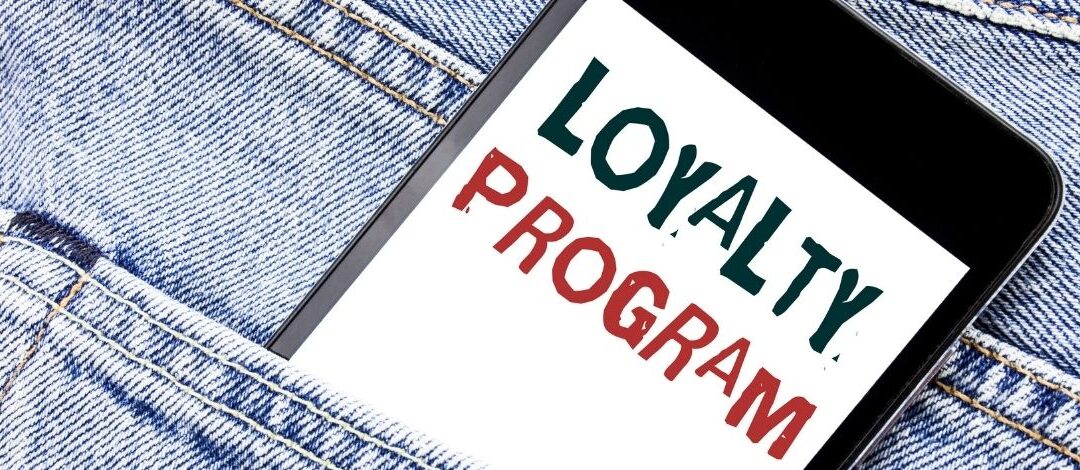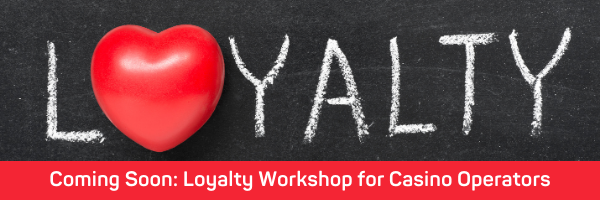This post originally appeared as a LinkedIn article in March 2014. Having had more discussions with more clients and potential clients, I find the thoughts still hold true.
As a marketer, I read a lot about branding and advertising trends. Working as a brand marketer, I also read a great deal about customer service and customer experience because I truly believe that is at the heart of any brand I get to work with. As a casino marketer, I read even more about loyalty programs used across different industries because they often give me a great insight into what I could be doing.
Forbes contributor Lois Geller once wrote about why Apple doesn’t have a loyalty program. Before I read the first word, I already had my answer. Apple DOES indeed have a loyalty program. It is a clear and solid brand – operationalized and translated throughout the organization (Jules Rules #3: Operationalize Your Brand). It’s called a good product that is consistent with a brand promise delivered time and time again. I am not an Apple worshiper. I know Apple worshipers, and I know I’m not one of them. I do, however, appreciate my Apple products, and I find them consistent with what they promised. Therefore, I can assume that I’ll upgrade or buy a new product sometime soon. Isn’t that, after all, the whole goal behind a loyalty program – to drive repeated visits and purchases?
Krispy Kreme Loyalty
 About the same time, I read another article. This time it was about loyal Krispy Kreme customers. In it, then-CMO Dwayne Chambers said, “The chain has a loyal fan base often willing to drive more than 30 minutes to one of its 240 U.S. shops for a kind of reward, a simple indulgence.”
About the same time, I read another article. This time it was about loyal Krispy Kreme customers. In it, then-CMO Dwayne Chambers said, “The chain has a loyal fan base often willing to drive more than 30 minutes to one of its 240 U.S. shops for a kind of reward, a simple indulgence.”
Although they eventually introduced a rewards program, loyalty might arguably still be its warm melt-in-your-mouth goodness.
Ms. Geller uses a great definition of a loyalty program in her Forbes article.
Loyalty programs are structured marketing efforts that reward, and therefore encourage, loyal buying behavior that is potentially beneficial to the firm.
Having read these articles, I thought about casino players’ card programs. Some call them “loyalty programs.” I tend to call them “players card programs” because while they are indeed structured marketing efforts that are rewarding and encouraging buying behavior, I believe (based on thousands of hours of research) that they are not driving loyalty to the business but the offers and rewards. It’s a bit like competing on price, which we all know is a short-term strategy.
How can we get break the bond to the offer and build one for the business? As a wise man once said, “Think Apple.” Solidify and operationalize your brand so that you don’t have to keep buying or discounting business. Use the card to get to know your customers better and better with each visit or purchase. Think brand. Think long-term.
Elizabeth Kraus gives us some excellent guidance in one of her posts.
The keys to discovering customer loyalty strategies that will build true brand loyalty may lie in the answers to these questions:
- How do we exceed customer expectations?
- Can we give customers a bigger voice – and a bigger stake – in our business?
- How do we make the lives of our customers better?
- How can we make it so that customers feel better about themselves as a result of doing business with us?
- What can we do so that customers would feel proud to recommend us to others or feel proud of being publicly affiliated with our organization?
How to Exceed Customer Expectations
Let’s start here. Once upon a time, not so long ago, meeting customer expectations automatically created customer loyalty. But not anymore. Our tech-savvy connected players have changed their expectations, and they are far from finished in their evolution! So, meeting expectations is simply not “good enough” anymore. Now, you need to exceed what is even higher expectations of getting and retaining customers.
The key to exceeding expectations is to proactively set realistic customer expectations and then go about exceeding them—preferably in unexpected ways.
When you can set customer expectations at a reasonable level, aligned with what you know you can deliver, exceeding expectations becomes routine. Customer service levels, from product development to marketing, finally work in harmony with your brand.
How can you deliver exceptional levels of service? Try some of these ideas.
Understand Why Customers Choose You
Understanding customer motivations is the first step when working first to set customer expectations and then to take steps to exceed those expectations. Learn why your customers choose you so you can start to anticipate their needs. A set of good FAQs on your website is a place to start because it helps your customers help themselves. It is like your call center or chat-line autopilot.
Review past conversations team members and call center agents have had with your customers. Then create a list of reasons customers contact you and set about fixing those issues. Beyond that, check your marketing personas. If you need help getting started, check out our post on why creating brand personas is essential. Take your persona project a step further to imagine why they choose you and not your closest competitor. Are they choosing your competitor over you? If so, why?
Start Being Proactive, and Not So Reactive
Customers don’t like to waste their time dealing with problems. So, fix the issues you identified in the step above and any others you discover as soon as you know they exist. Don’t wait for customers to call and complain! This proactive approach builds trust and creates loyalty better than any loyalty card program.
Do the Unexpected
What could be unexpected? Send a birthday message? How about a “half-birthday message” as Brittany Hodak recommended when I asked some marketing pros for their tips. Customers LOVE coupon codes and offers. There is no limit to the reason for extending them but make them unexpected and original. Doing the unexpected makes everyone, not just customers, feel appreciated and important, which helps retain your base.
Personalize Interactions
Use customer names wherever possible. Do you know there are still companies out there that do not use the person’s name in emails or during their in-person interactions, even when they may be holding something with the person’s name on it? Leverage your database. Mail merge technology exists and easy. Make sure agents have the correct information handy when they handle problems. Do whatever your technology allows making interactions seem more personalized.
Help Customers Understand
With complicated tech, customers click away. Likewise, when we make the guest experience cumbersome or confusing, they mentally click away before they walk away. Confusion and frustration don’t make for loyal customers. So, help customers understand what they need to do when they visit your property (as well as your website) as simply as possible.
Create Consistency Across All Channels
Customers expect a high customer service level and fast response. There is no question about that. Set a standard for quickly answering calls. Determine triggers for opening new lines. Make sure your site is responsive, and customers can switch from one device to the next seamlessly.
In Summary
These seven tips to help exceed customer expectations all come together to make one key point.
Our customers are not buying products or services. They buy the experience of good feelings and great gameplay. Exceeding these customers’ expectations happens when you create a foundation for those good feelings by developing excellent experiences. The ripple effect then extends well beyond customer satisfaction and retention. Now, your brand is distinguished and builds repeat business.
Once you can stop thinking offers and start thinking loyalty, you’ll find the answers to your brand questions.
What do you think about your loyalty programs and their impact on your business? Let’s start a discussion.



Trackbacks/Pingbacks